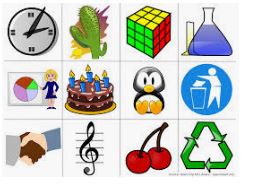Computers Grade 11
Computing is part of everything we do!
The important aspects of computer science are problem-solving and saving time. Students study the design, development, and analysis of software and hardware used to solve problems, bring standardization, increase efficiency, and reduce cost. Because computers solve problems to serve people, there is a significant human side to computer science as well.
Computers offer many types of lucrative careers regardless of where you are located. Expertise in computing helps even if your primary career is something else. Future opportunities in computing are limitless.
Here, children can opt for the Computer Sciences course along with the other subjects. This course is spread over all the grades in our school and advances along the following areas.
- Theory.
- Hardware.
- Programming Software and Apps development.
- Networking.
- Graphics.
- Systems design.
- Artificial Intelligence.
In 40 episodes, Carrie Anne Philbin teaches you computer science! This course is based on introductory college-level material as well as the AP Computer Science Principles guidelines. By the end of this course, you will be able to:
*Outline the history of computers and the design decisions that gave us modern computers
*Describe the basic elements of programming and software
*Identify the basic components of computer hardware and what they do
*Describe how computers are used and how that has evolved over time
*Appreciate how far computers have come and how far they might take us
This course is currently set as FREE. So go ahead, make AukSunLMS, Your Homeschool!
However, if you wish to contribute to teaching children, you may send any money:![]()
-
Crash Course Computer Science Preview
-
1 The Mechanics of How Computers Work 1:41:34 • 0 / 9
- 11Cmp001 Early Computing
- 11Cmp002 Electronic Computing
-
11Cmp003 Boolean Logic & Logic Gates
-
11Cmp004 Representing Numbers and Letters with Binary
-
11Cmp005 How Computers Calculate – the ALU
-
11Cmp006 Registers and RAM
-
11Cmp007 The Central Processing Unit (CPU)
-
11Cmp008 Instructions & Programs
-
11Cmp009 Advanced CPU Designs
-
2 The Basics of Programming and Software 1:18:45 • 0 / 7
-
11Cmp010 Early Programming
-
11Cmp011 The First Programming Languages
-
11Cmp012 Programming Basics: Statements & Functions
-
11Cmp013 Intro to Algorithms
-
11Cmp014 Data Structures
-
11Cmp015 Alan Turing
-
11Cmp016 Software Engineering
-
-
3 Computer Hardware 1:27:30 • 0 / 7
-
11Cmp017 Integrated Circuits & Moore’s Law
-
11Cmp018 Operating Systems
-
11Cmp019 Memory & Storage
-
11Cmp020 Files & File Systems
-
11Cmp021 Compression
-
11Cmp022 Keyboards & Command Line Interfaces
-
11Cmp023 Screens & 2D Graphics
-
-
4 The Rise of Personal Computers and Graphics 47:14 • 0 / 4
-
11Cmp024 The Cold War and Consumerism
-
11Cmp025 The Personal Computer Revolution
-
11Cmp026 Graphical User Interfaces
-
11Cmp027 3D Graphics
-
-
5 The Internet 1:12:51 • 0 / 6
-
11Cmp028 Computer Networks
-
11Cmp029 The Internet
-
11Cmp030 The World Wide Web
-
11Cmp031 Cybersecurity
-
11Cmp032 Hackers & Cyber Attacks
-
11Cmp033 Cryptography
-
-
6 Artificial Intelligence 47:17 • 0 / 4
-
11Cmp034 Machine Learning & Artificial Intelligence
-
11Cmp035 Computer Vision
-
11Cmp036 Natural Language Processing
-
11Cmp037 Robots
-
-
7 Humans and the Future of Computing 37:01 • 0 / 3
-
11Cmp038 Psychology of Computing
-
11Cmp039 Educational Technology
-
11Cmp040 The Singularity, Skynet, and the Future of Computing
-
-
References
-
11Cmp041 Reference learning
-


